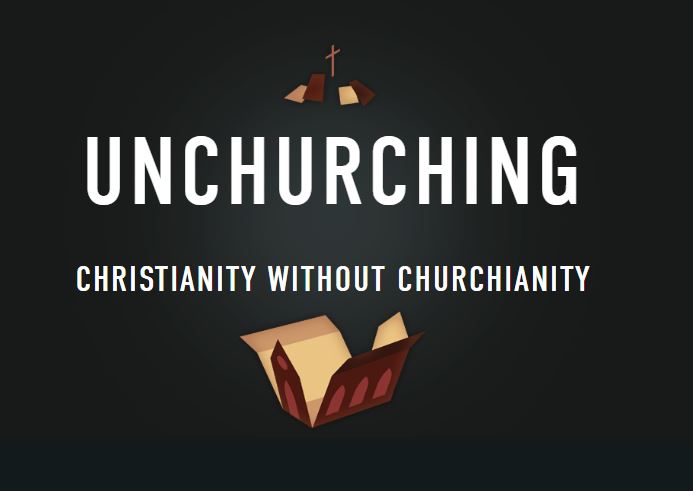
Lots of data has been collected over the last decade about Millennials and their views on faith. Organizations like Barna Group have done survey after survey and have shown that some interesting trends exist among our generation as a whole. Focusing on Millennials who were raised in church, we break down into four major attitudes.
10% have left the faith completely. This can be encouraging. Despite the mass exodus of young people from churches we see, 90% are still holding on to their faith and personal practice of it even though many are ditching the institutionalized practice of it.
20% are still in churches and are happy. They haven’t seen major problems within their congregations or problems resulting from their institutional practice of faith. To them, church attendance is a practical AND enjoyable expression of faith.
30% are in churches but are unhappy. They see major problems but continue with church attendance for a variety of reasons. The important thing for this group is that, despite all it’s flaws churches are still worth supporting through attendance and possibly finances.

40% are the rogues – those who abandoned the herd to practice faith in the streets, in our homes, among the lost instead of in the building on Sunday mornings. They see the institutional churches of our era as more damaging than helpful to the Kingdom, and have walked out on the institutions our parents and grandparents built to practice faith in a far more personal way, a far more tight-knit community.

When we started our blog one year ago, we knew we all had the same complaints and frustrations, hopes and callings. What we didn’t know was how many of us there really are out there. Not only have 40% of Millennials, the largest generation in American history, already walked out of institutional churches, but 30% more are on the verge and 10% have gone so far as to leave the faith. That’s 80% of our generation who have serious concerns about churches “doing business as usual” – so grave are our concerns, that we’re voting with our feet and finding God elsewhere.
We have not just found this trend among Millennials, however. Large groups of other generations are being guided by God along the same faith walk – leaving the institutions of faith to rediscover the tight-knit community early Christians experienced, and leaving the institutional practices of churches to experience God in more personal ways.
One of the fast growing groups that share this conviction and faith journey is the “Unchurching” movement – and that is who we’d like to spotlight today!

Unchurching is based on a book by the same title, written by Richard Jacobson. The subtitle is “Christianity without Churchianity” and it delves into the worrisome trends of modern American Christianity to put churches and their traditions on a pedestal higher than Christ and his Kingdom.
It’s well known that many Christians get distracted by the trappings. You have to do communion the same way WE do, or else you’re not a real Believer. You have to do baptism the same way, go to church on the same day, use the same symbol, fixate on the same passage, give the same percentage of your income – or else you aren’t one of us.
 This herd mentality is extremely common in churches. It’s conformity over freedom, and it damages the diversity and freedom the Kingdom of God was meant to bring. If you don’t do everything like our church does, if you don’t agree with every element of our statement of faith, if you don’t interpret every passage of Scripture the same way we do – then we disown you. The allegiance to the business corporation is often shockingly unChristian.
This herd mentality is extremely common in churches. It’s conformity over freedom, and it damages the diversity and freedom the Kingdom of God was meant to bring. If you don’t do everything like our church does, if you don’t agree with every element of our statement of faith, if you don’t interpret every passage of Scripture the same way we do – then we disown you. The allegiance to the business corporation is often shockingly unChristian.
Unchurching is a growing movement of Christians who are leaving churches and the allegiance to trappings churches demand in order to find God, experience him more personally, and enjoy smaller, tight-knit communities that don’t put institutional concerns in front of godliness.
Many of those unchurching leave church after neglect, abuse or becoming disenchanted from seeing the goals of the Kingdom hijacked by supposed Christian leaders for church empire purposes. Because of this, the unchurching movement has become a support group for refugees from the church.
So if you are one of those who consider themselves “unchurched,” we want to encourage you.
- You are not alone. There are hundreds of thousands of us.
- You are right. There are serious problems in the way most churches practice the faith – problems that lead to serious damages in the lives of God’s children.
- There is hope. Those who leave the church often tell stories of how God healed them of their wounds and brought them to a closer personal relationship as well as connected them with more sincere and authentic Christian community.
In Jacobson’s words, those who are unchurching “not only want a different expression, we want an entirely different experience.” It isn’t about moving the same old church practices to a smaller venue. It’s about reassessing every one of those practices to see if they meet the needs of the Kingdom, advance the message of the Gospel, and draw us closer to God.
“We are moving completely against current culture, including the current church culture.” – http://www.unchurching.com/blog/
“Unchurching” is just one of many movements seeking to rally those who are leaving institutional faith to rediscover the wonders of personal faith and intimate faith community.
 To learn more about them, check out their website at Unchurching.com
To learn more about them, check out their website at Unchurching.com
You can also find them on social media. “Unchurching Group” on Facebook is a place where over 4,300 people have connected to share their stories of leaving the church and finding God.
Even if you haven’t left church, it is important to connect with those who have left. Only by developing relationships with those who left can you better understand how they practice faith different from you and how churches can reconnect with those of us that have gone rogue.

For me, it depends largely on the fruit of the unchurching – and a lot of that fruit is supposed to be outward, not inward. An unchurched congregation may be tight-knit, but is it advancing? Is it spreading the true gospel to the lost? Is it showing charity to the community? Is sin being defeated and victory found? In the end, that’s all that really matters (and it’s also an even bigger criticism of churchianity).
LikeLiked by 1 person
So true. Bearing fruit is a problem in both churches and the unchurched. A problem unique to the unchurched communities is how to quantify quality, growth, advancement. For instance, if people growing deeper in faith, even if the community isn’t growing numerically – how do you measure such things? I feel each community, whether church or unchurched, needs to learn to and commit to regularly assessing itself for a variety of godly fruit!
LikeLiked by 1 person
Thank you for this post. It’s good to know we are not alone. Our family left the “country club, seeker friendly” church a decade ago to seek a more authentic and organic relationship with The Lord as described in Acts. Personally, after attending church for 30 years, I could not handle the hypocrisy, judgement and christian club mentality anymore. The church is a people, not a building. Our faith has grown, but we still travel a path that can be lonely. This post was encouraging. Thank you.
LikeLiked by 3 people
You are extremely welcome! We agree on so much, and especially on the value of knowing you aren’t alone. Check out this article for some thoughts on house churching that are right in line with your passions and concerns! https://roguemillennials.org/2017/05/21/house-church-to-the-rescue/
LikeLike
Denominational Christianity is structured as an organizational system which tends to inhibit relationships and the pursuit of the deeper Christian life.
There are some free books and videos here that may be of interest along these lines.
http://christianpioneer.com/
LikeLike